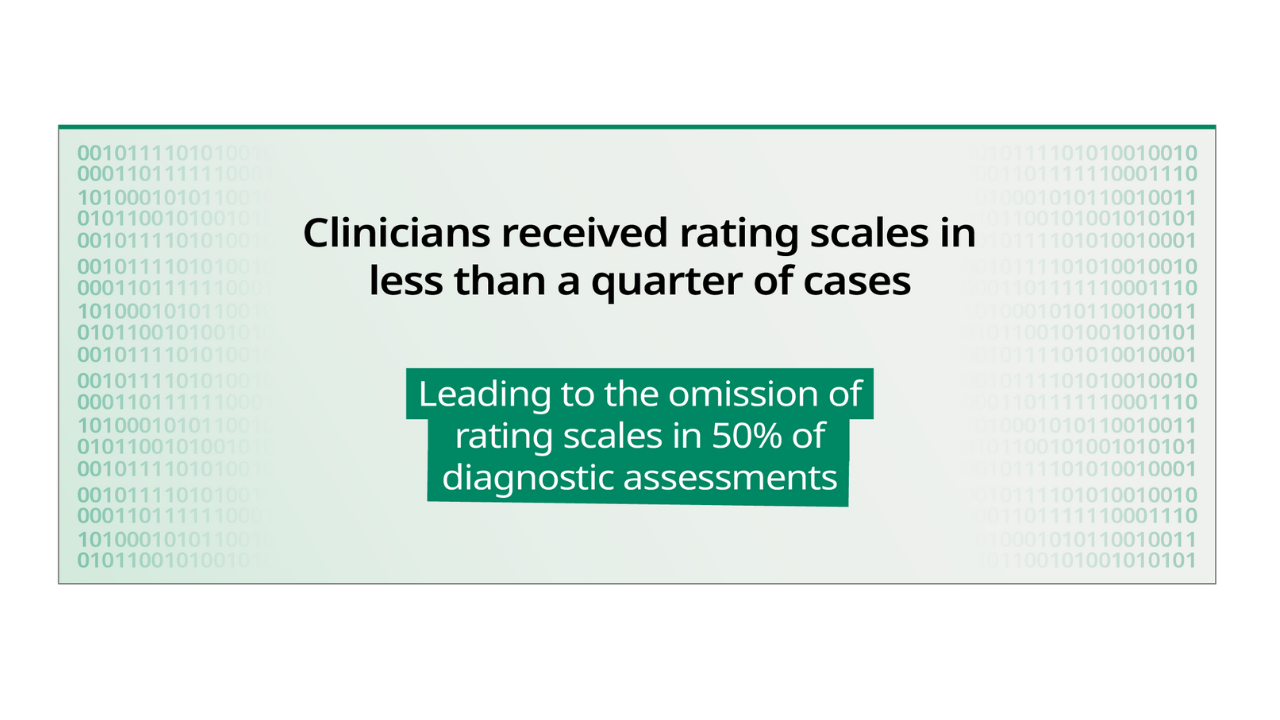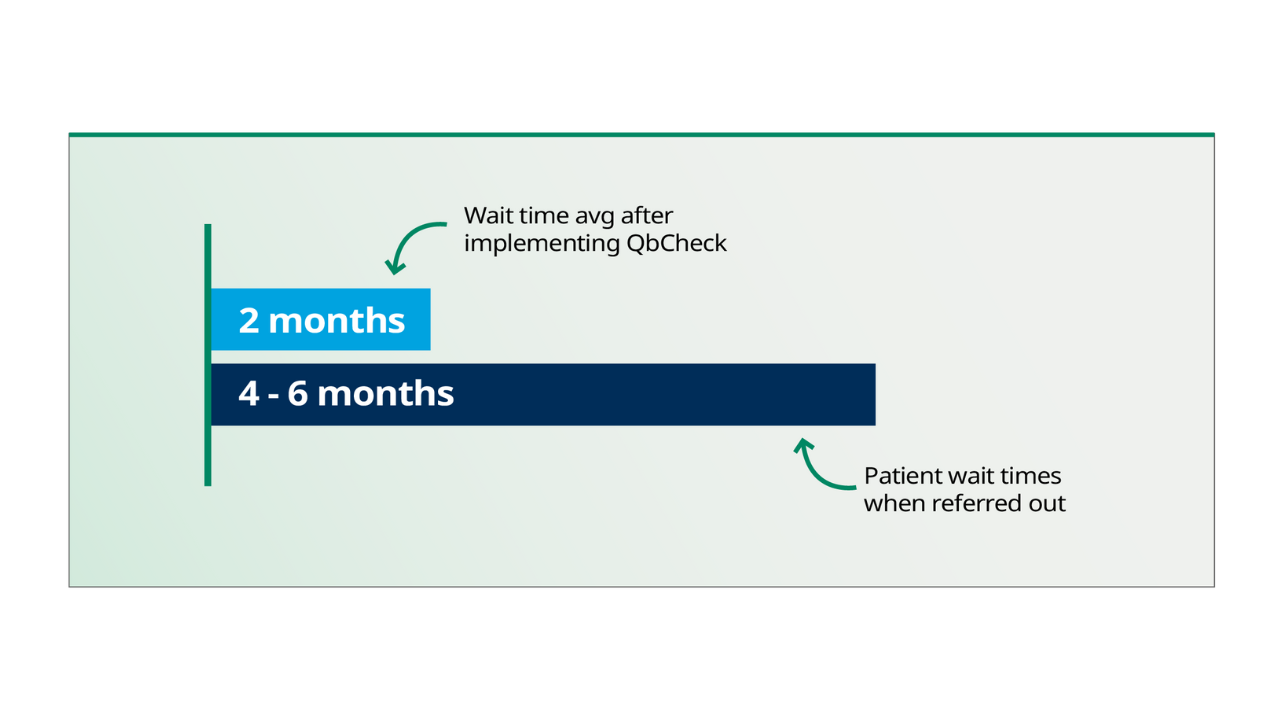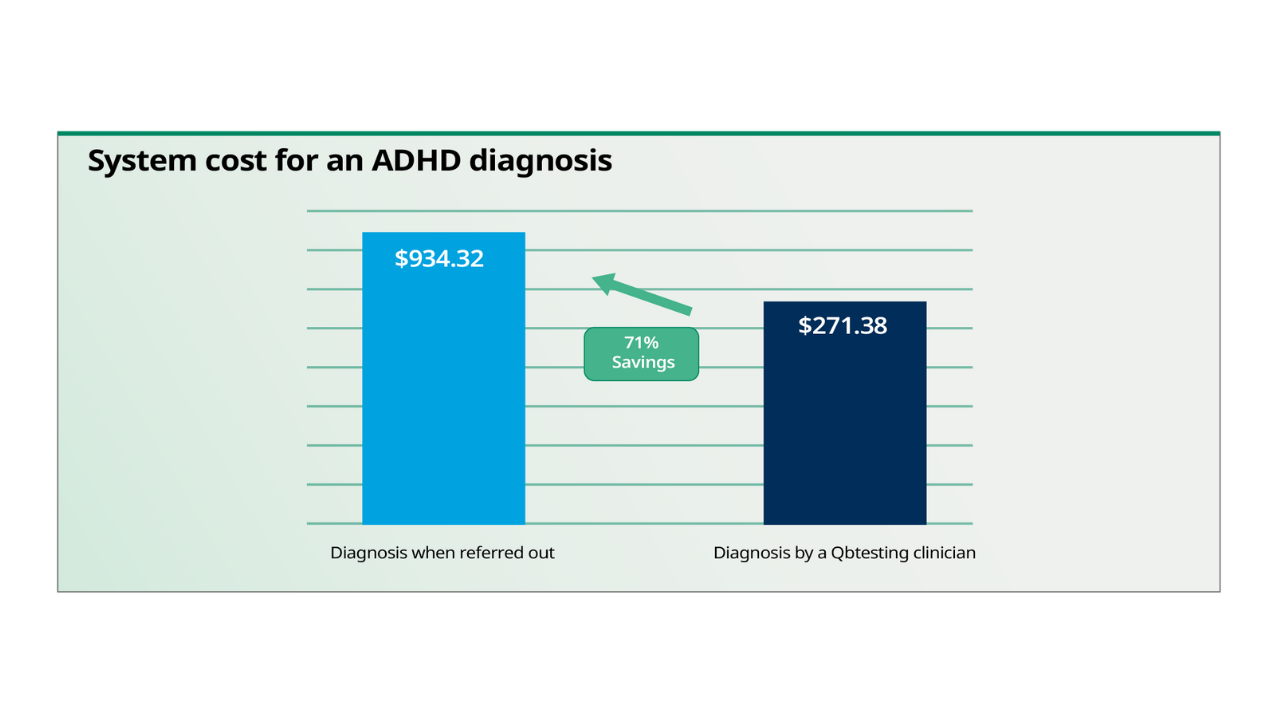Inconsistent or missing rating scale data, combined with long wait times for testing and referral, can create a perfect storm of challenges. For clinicians without extensive experience in ADHD care, this can undermine confidence in diagnostic decision-making and add pressure to reach a timely decision.
Cassondra Marie Rose, licensed therapist and founder of Renewing Hope clinic, explains how introducing Qbtech ADHD testing across five California clinics cut costs through in-house diagnosis, reduced wait times, and boosted clinician confidence.
This experience shows how using digital technology can help clinicians to diagnose ADHD more confidently and efficiently in multi-site ADHD settings.
Key Outcomes for Renewing Hope
- 71% lower cost per diagnosis when done in-house vs. referred out
- 86% of surveyed clinicians reported feeling more confident
- Wait times under three weeks at most sites
- Standardized care model across five sites
- A shift to a data-driven approach to ADHD diagnosis
The challenge: Inconsistent symptom data, long wait times, and limited clinical ADHD experience
Before introducing Qbtesting, clinicians at Renewing Hope faced three major challenges that combined to make ADHD diagnoses difficult.
Rating scales' omissions led to critical data gaps
Clinicians faced significant challenges in obtaining reliable data on symptoms from patients. Patients returned rating scales less than 25% of the time. This led to clinicians skipping them in almost half of the cases. The AAP recommends use of rating scales alongside a clinical interview to make an ADHD diagnosis.
Lack of data and low clinician confidence had a significant impact on patient experience. Only 29% of clinicians were able to reach an ADHD diagnosis in under an hour. And, 61% of clinicians needed two or more patient visits to make a decision.

Lack of data and low clinician confidence had a significant impact on patient experience. Only 29% of clinicians were able to reach an ADHD diagnosis in under an hour, and 61% of clinicians needed two or more patient visits to make a decision.
Dependency on external referrals led to long wait times and delays in ADHD patient care
Before in-house ADHD testing, the clinic had to rely on external referrals for patient assessment. This led to long delays, up to four to six months, causing patient frustration.
Limited experience with ADHD patients led to reduced confidence
A relative lack of experience with ADHD patients can significantly affect clinician confidence in decision-making. 82% of clinicians at Renewing Hope reported having less than five years of experience in ADHD care before the introduction of Qbtesting.

The solution: Integrating Qbtesting as a standardized practice to boost clinician confidence and tackle wait times
Renewing Hope introduced Qbtech’s ADHD testing technology at five sites in underserved California regions. The aim was to empower clinicians with objective technology and support them to deliver consistent care across the clinic’s locations.
The digital tests were integrated into a workflow led by masters-level clinicians and Nurse Practitioners. The clinicians were supported with training and guidance, delivered by Qbtech, on use of the technology and how to interpret the results of ADHD tests.
"Masters-level clinicians are licensed to assess ADHD and yet are historically under-utilized for these diagnostics. We implemented Qbtech technology in our practice to utilize our skilled masters-level clinicians and best equip them using FDA-cleared and evidence-based technology. This allows them to do the work they have been trained for, helping reduce wait times and providing the highest quality care available to serve patients across our multiple locations in the Inland Empire.”
– Cassondra Marie Rose
The result: A scalable ADHD care model that reduces system costs, empowers clinicians, and better serves patients
Renewing Hope successfully remodeled their ADHD care pathway using the in-house expertise of Masters-level clinicians and Qbtesting to empower clinicians less experienced with ADHD to confidently make a diagnosis.
The ADHD assessment pathway is now fully standardized across all sites, meaning that patients receive a consistent high level of care wherever they are. This has been a significant benefit for patients, reducing healthcare disparities in underserved areas and also providing the clinic with a scalable model they can continue to roll out to new areas.
“We have significantly improved our care model for patients struggling with ADHD and improved our clinicians’ confidence across the network by providing objective, tangible data for a more concise diagnosis and care management program.”
The impact of adding a digital ADHD test on cost efficiency, wait times, and clinician confidence and cost efficiency
There have been significant cost savings from using upskilled clinicians in-house rather than referring out. Cost efficiencies are the result of better utilization of staff, reducing unnecessary procedures, and cutting down on external referrals, with a potential 71% total cost saving.

“Since implementing the technology in our practice, we have drastically reduced wait times by upskilling our highly qualified masters-level clinicians to diagnose and treat ADHD.”
The new pathway delivers for patients and clinicians alike and serves as a blueprint for other multi-site clinics seeking scalable ADHD care solutions.
About Renewing Hope
Renewing Hope is a multi-site counselling center that operates in California, including in some of the region’s underserved areas. They also support the community by working with lower income individuals and families.
Cassondra Marie Rose is the President and Founder of Renewing Hope and a Licensed Marriage and Family Therapist.
